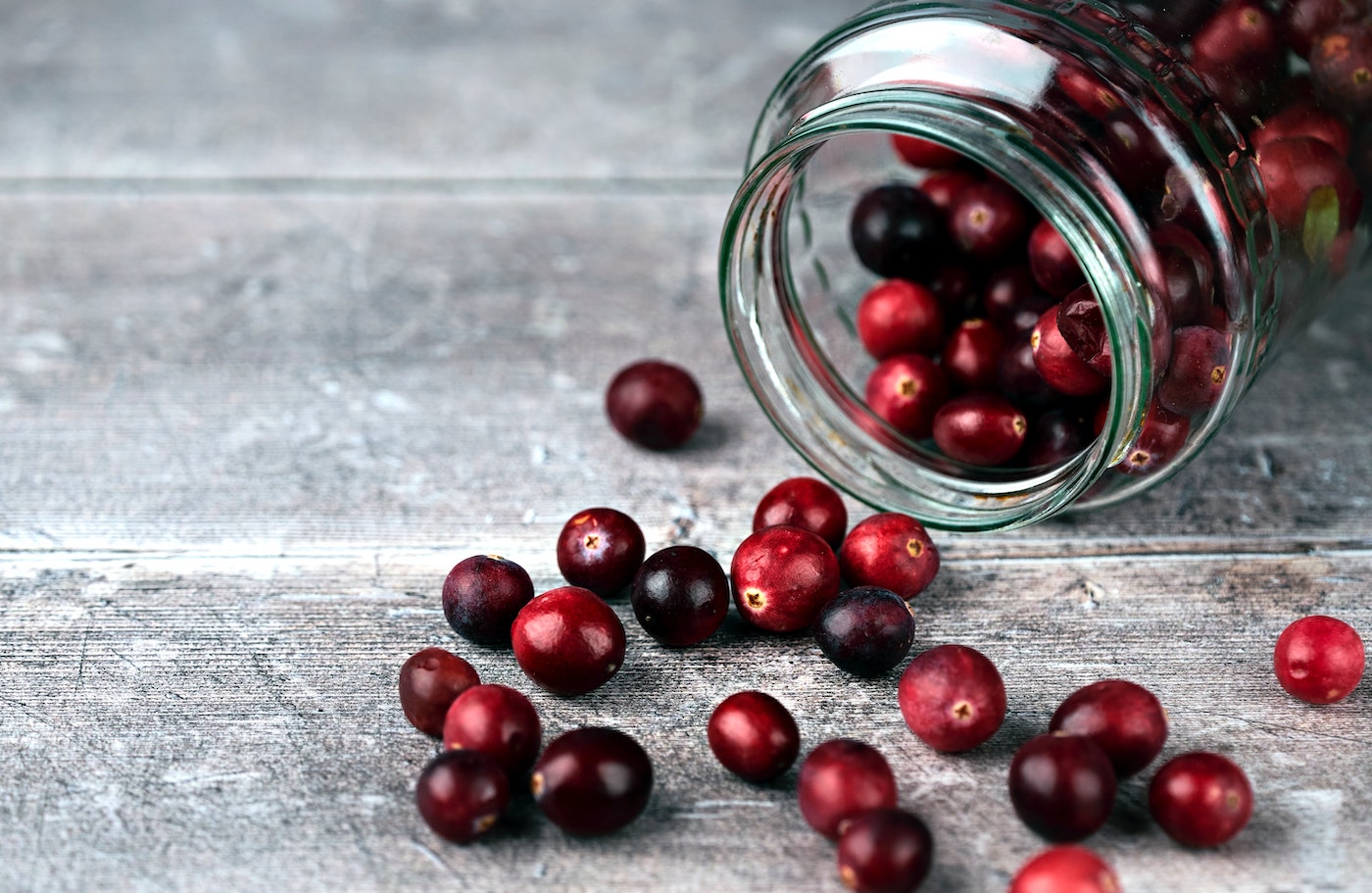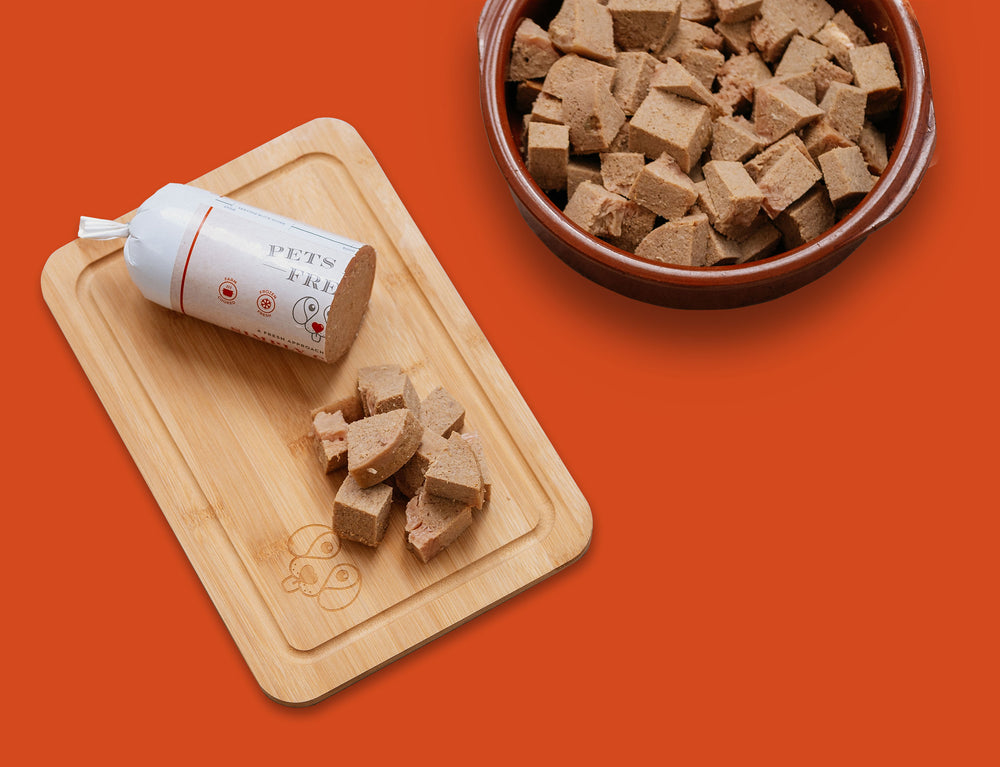As dog owners we’re constantly worried about what our dogs are munching away at under the table, and for good reason. Our digestive systems are not made the same as theirs. We know chocolate, one of our favourite foods, is toxic for dogs, though many dogs will attempt to eat it all the same.
What else should we be mindful of feeding them–intentionally or accidentally?
Tart, sweet, festive and rich in antioxidants, cranberries are not as ubiquitous in our diets as perhaps they ought to be. They are something we tend to eat more of during the holidays, as cranberry sauce, or as juice or supplements.
Cranberries can be a healthy part of your dog’s daily diet – but there are a few things to know before you succumb to their begging and give them some of yours.
Can Dogs Eat Dried Cranberries?
The short answer is yes, but in moderation. Cranberries are rich in antioxidants and other nutrients that make them healthy. But too many dried cranberries could upset your dog’s stomach and lead to diarrhoea.
Make sure the cranberries you feed your dog are not mixed with similar-looking raisins, which can be very toxic for dogs, even in small quantities.
Cranberries are naturally unsweet and when dried they almost always have sugar added, so that’s something to watch out for, too, especially for dogs with diabetes.
Can Dogs Eat Cooked Cranberries?
The simple answer to this is yes but that is if you’ve prepared their food yourself and know the different ingredients within the meal. It’s important to know the contents of the meal you’re preparing or if you’ve purchased cranberries from the local shop.
There could be a mix of other ingredients which is particularly harmful to your dog. In addition to this, it’s also important to review the sugar contents as too much can also cause your dog problems. Ultimately, if you’re cooking cranberries and are aware of the other ingredients you’re using then there’s no reason to worry about your dog’s safety.
Can Dogs Have Cranberry Juice?
Most commercially available cranberry juice contains added sugar, and other ingredients that may not be suitable for your dog. The high acid and sugar content in cranberry juice can lead to other problems, too, such as diarrhoea and vomiting, cancelling out its other benefits.
Many women swear by cranberry juice as the ultimate cure for several uncomfortable conditions, such as UTIs and cystitis. Can dogs drink cranberry juice for a UTI? The jury is out – there’s not enough research into its helpfulness for dogs to be able to recommend this home remedy. Though if they drink it in its natural state, it will unlikely lead to any harm.
For known kidney infections, or if your dog is showing signs of straining while passing urine, it’s best to see your veterinarian, as antibiotics might be necessary.
Dogs are usually better off drinking water, and eating cranberries as part of a fresh, nutritionally balanced diet.
Can Dogs Eat Cranberry Sauce?
The same sentiment applies to the previous heading. Always inspect the label of the Cranberry Sauce to check for additives that are harmful to your dogs.
Be watchful about the sugar content as this can sometimes get overlooked. Avoid cranberry sauces which are extremely high in sugar. It's best to not feed your dog this sauce.
On the occasion where your dog manages to have some cranberry sauce without your knowledge, then contact a veterinarian if you deem the product to be harmful to them.
Can Cranberries Help Dogs With UTIs?
Cranberry juice is often used to help humans with a UTI which you’ll be surprised to learn can also be used to treat dogs. Of course, giving your dog cranberry juice from the store like humans is not the best way to go about it.
Store bought items are likely to be harmful and not recommended in contrast to a qualified Veterinarian. Consult a professional vet who can provide more advice and the correct supplements for your dog.
Benefits Of Cranberries For Dogs
In their natural, unadulterated state, cranberries are a health food for humans and dogs. A rich source of antioxidants, these little berries can help fight signs of ageing and cancer, and promote eye health, reducing the risk of cataract and glaucoma which affect many dogs in later life.
They are also a natural and easily digestible source of vitamin C, important for reducing inflammation and encouraging all-round good health.
How To Feed Your Dog Cranberries Safely
Cranberries without added sugar are probably not going to be the first thing your dog goes for, owing to their tart flavour. But they may be more inclined to eat them when mixed with other delicious ingredients.
Cooked, powdered or raw are all fine for dogs, though raw cranberries may pose a potential choking hazard in particular for small dogs.
Avoid added ingredients like sugar and sweeteners such as xylitol, which are toxic for dogs. Cranberry sauce is usually laden with sugar, and other ingredients like grapes which aren’t dog-friendly.
A safe way to feed your dog cranberries is via natural treats and supplements formulated for dogs. Pets Love Fresh dog food proudly contains just the right amount of cranberry powder, offering dogs the health benefits of cranberries without the tart taste or added nasties.
Our dogs haven’t tried a tastier, more nutritious dog food – try a taster pack and see if your dogs agree.


